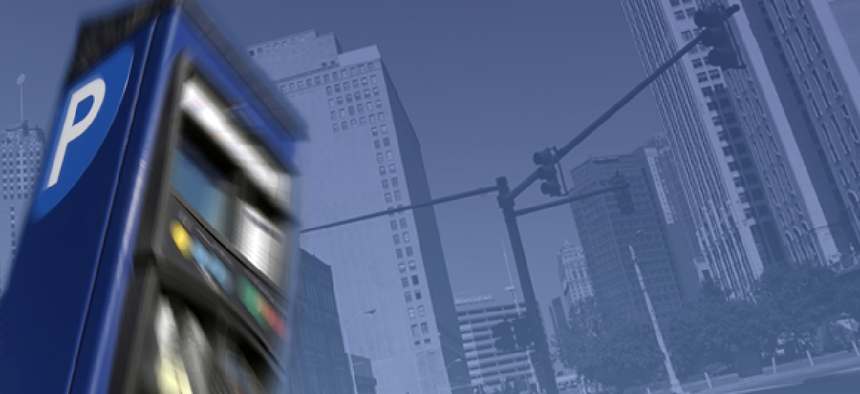Detroit adopts pay-by-plate parking tech


Connecting state and local government leaders
Detroit joined the ranks of cities replacing parking meters with an electronic parking system where drivers enter their license plate numbers to pay for parking time, not a parking space.
Detroit is turning to parking technology as one way to spur greater economic activity.
It turns out that parking – its cost and its availability or lack of it – is a major driver of city revenue and business development. It’s not just the money collected from parking meters and parking tickets; it accounts for a major part of a business district’s traffic congestion.
Now on Detroit's "Avenue of Fashion," shoppers will no longer have to feed coins into meters; they will now enter their payment and license plate number into a parking kiosk and purchase parking time, rather than a parking spot, according to a report in the Detroit News.
Parking enforcement staff will use license plate recognition tools to scan plates to determine whether time has been purchased. The new system also allows for cash or credit payments either at the kiosk or through a mobile application.
The technology gives drivers the flexibility to move to different spaces within specified zones without having to initiate a new transaction, Detroit's Chief Operating Officer Gary Brown told the Detroit News.
City officials envision fewer tickets being written under the new system as motorists now have more payment options. By tying license numbers to parking, “meter maids,” or parking enforcement officials won’t have to walk and check each meter for expiration. License plate numbers will also give the city a way to bill those who neglect to pay or who overstay their time without continuing to pay.
Besides being a vast improvement on aging (and sometimes broken) meters, the technology will allow the city to easily change parking rates.
Other cities such as Pittsburgh and Miami have implemented similar pay-by-plate programs. In Pittsburgh, the move to the new technology, coupled with a rate increase, boosted gross revenues by about 35 percent and reduced meter violations 10 percent, according to the Detroit News report.
Detroit’s system is expected to begin construction in early April or as soon as March with full operation available by June. The total infrastructure will include 300 meter kiosks and 3,000 parking spaces.




